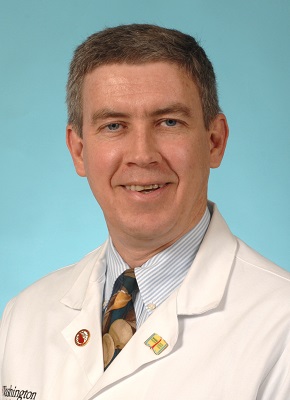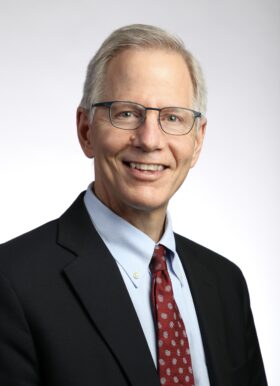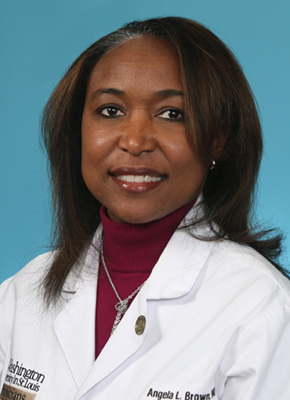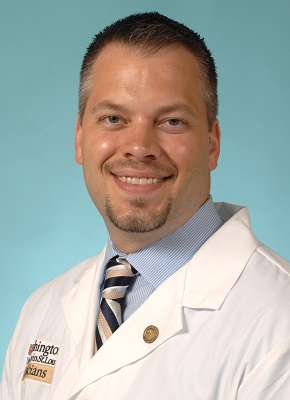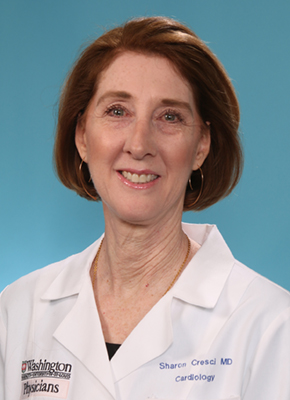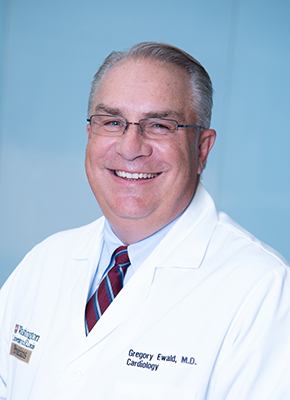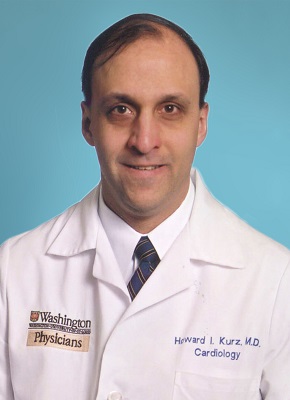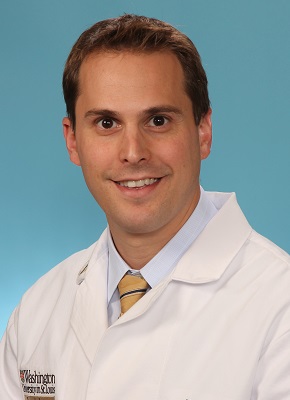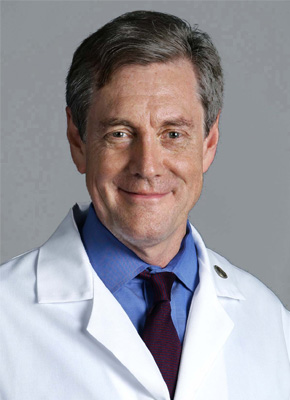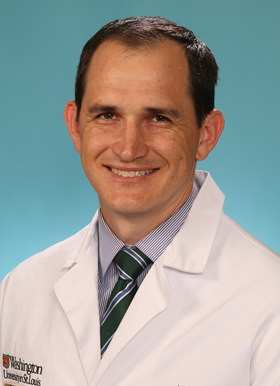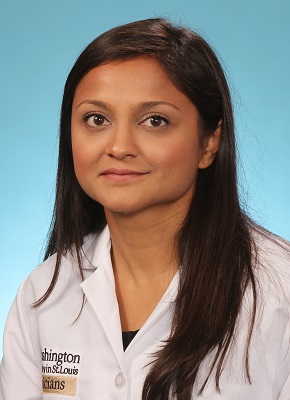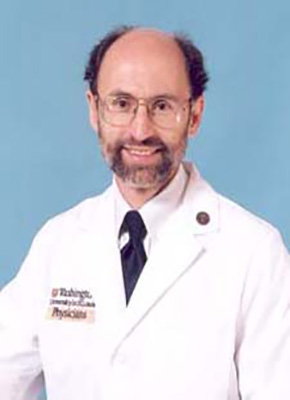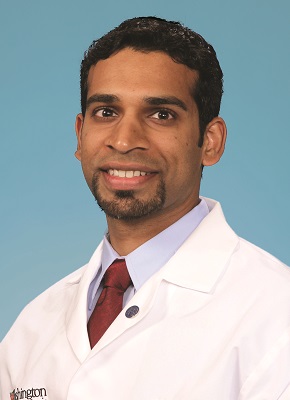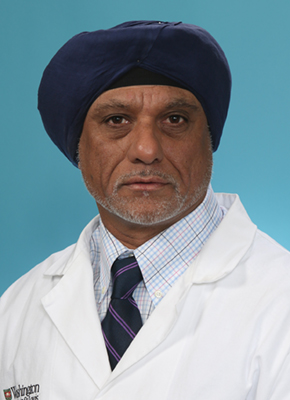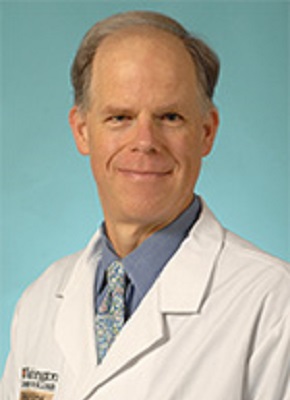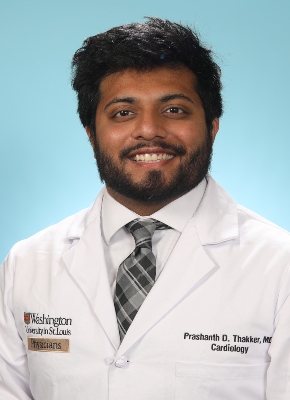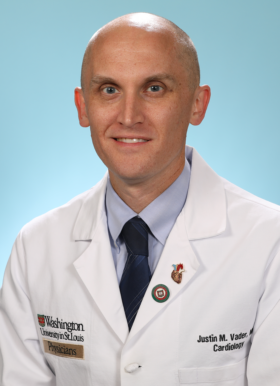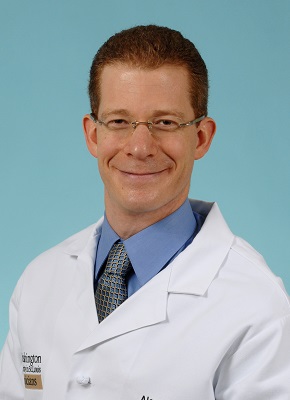Heart Matters – September 2023

Aspirin Can Help Reduce Risk of Second Heart Attack, But Study Finds Less Than Half of Eligible Adults Take It

Cardiovascular fellow Dr. Kyle Yoo was interviewed by CNN in this article about his recent publication.
For adults who have survived a heart attack or stroke, taking aspirin regularly may reduce the risk of another cardiovascular event. But a new study suggests that less than half of these cardiovascular disease patients around the world are using aspirin to prevent a new event.
Among people with a history of cardiovascular disease who were surveyed in the new study, only about 40% reported taking aspirin to prevent another heart attack, stroke or cardiovascular event.
The proportion of patients using aspirin to reduce the risk of a secondary event varied by country, however, ranging from 16.6% in low-income countries such as Afghanistan, Benin and Ethiopia to 65% in high-income countries such as Czechia, the UK and the US, according to the study, published Tuesday in the medical journal JAMA.
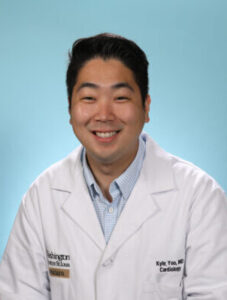
“We had hoped that the rates of aspirin use for secondary prevention would be much higher. Particularly I think, overall, globally, there has been an emphasis on improving cardiovascular health, and one of the efforts is to improve use of some of these evidence-based medications,” said Dr. Sang Gune Yoo, an author of the study and a cardiovascular disease fellow in the cardiovascular division at Washington University School of Medicine in St. Louis.
Secondary prevention refers to using aspirin to reduce the risk of a second or additional heart attack or stroke. It’s different from primary prevention — using aspirin to reduce the risk of a first heart attack or stroke.
Unlike with primary prevention, where the risk-benefit ratio of aspirin is not as clear, available research on secondary prevention shows that the benefits of taking aspirin far outweigh the risks for people who have had a heart attack or stroke.
The World Health Organization has a target for at least 50% of those eligible people to receive some type of drug therapy and counseling to prevent heart attacks and strokes.
Cardiovascular diseases are the leading cause of death worldwide, claiming about 18 million lives each year, according to WHO. It’s estimated that more than 4 in 5 cardiovascular disease deaths are due to heart attacks and strokes. Because aspirin helps thin the blood, that can help reduce the risk of blockages in the arteries that may cause a heart attack or stroke.
“What our study is highlighting is that despite efforts being put in to improve cardiovascular health globally, aspirin continues to be underused in secondary preventions,” Yoo said. “Given that it continues to be the number one cause of mortality, it’s very important that health systems and countries strategize ways to improve uptake of aspirin use as well as other cardiovascular medicines.”
Where aspirin is used
For the new study, Yoo and his colleagues from Washington University, the University of Michigan and other institutions around the world analyzed data from 51 countries where surveys were conducted between 2013 and 2020. Seven of the surveys were conducted in low-income countries, 23 in lower-middle-income countries, 14 in upper-middle-income countries and seven in high-income countries.
The surveys included responses from more than 124,500 adults ages 40 to 69 who reported their history of cardiovascular disease and aspirin use. More than 10,500 of them reported having cardiovascular disease.
When the researchers examined aspirin use among people with a history of cardiovascular problems, they found that in low-income countries, 16.6% were taking aspirin to prevent another event; in lower-middle-income countries, it was 24.5%; in upper-middle-income countries, it was 51.1%; and in high-income countries, it was 65%.
“To our knowledge, the current study provides the most extensive and updated estimates of the worldwide use of aspirin for secondary prevention of CVD,” the researchers wrote, using the abbreviation for cardiovascular disease.
“Our findings revealed marked inequities worldwide, as illustrated by 4-fold greater aspirin use for secondary CVD prevention in high-income compared with low-income countries,” they wrote. “None of the 30 low-income or lower-middle-income countries in our sample achieved the WHO target that at least 50% of eligible individuals with a history of CVD take aspirin. Only about half of upper-middle-income and high-income countries included in our analysis achieved this target.”
Yoo said that the study did not analyze why there were such differences in the low use of aspirin, and he said more research is needed to determine whether it is related to access, to providers not recommending aspirin or other factors.
Among people with a history of cardiovascular disease, there was more aspirin use in those who were older, who were male, who had higher levels of education and who lived in urban areas, the researchers found.
The researchers say their findings suggest that aspirin is underused as an inexpensive tool for the secondary prevention of cardiovascular disease events globally. In the United States, low-dose aspirin is available over-the-counter and can cost as little as $5 to $10.
Who should take aspirin?
“We live in a time where we have incredible, well-established therapies that are effective at reducing the risk of cardiovascular events, and despite the plethora of evidence supporting its use, we suboptimally use many lifesaving medicines. And this is just one example,” said Dr. Jeffrey Berger, director of the Center for the Prevention of Cardiovascular Disease at NYU Langone Heart in New York, who was not involved in the new study.
He added that many people with cardiovascular disease who could benefit from regular exercise and a healthy diet also do not adhere to those practices, just as they may not take aspirin for secondary prevention.
“Aspirin has been around for more than a century. It has been shown to be effective at lowering the risk of a cardiovascular event by close to 40 years, over four decades or so. I think people forget about the overwhelming data supporting its use,” said Berger, who is also an associate professor at the NYU Grossman School of Medicine.
“Unfortunately, there is sometimes a misunderstanding of patients and health care providers,” he said. “I think there is a lot of uncertainty over who should be on aspirin for the prevention of a first heart attack or stroke.”
The US Preventive Services Task Force recommends against adults 60 and older starting on low-dose aspirin for the primary prevention of cardiovascular disease, and for people ages 40 to 59 who have a 10% or greater risk of cardiovascular disease over 10 years, it leaves the decision up to doctors and patients. But that’s much different from someone who has a history of cardiovascular disease taking aspirin to prevent a second heart attack or stroke.
“Aspirin is a double edge sword,” Dr. Erin Michos, associate director of preventive cardiology at Johns Hopkins Medicine in Baltimore, wrote in an email.
“It can reduce the risk of thrombosis but this comes at the expense of increased risk of bleeding, so it has a narrower therapeutic window. A delicate balance between thrombosis risk and bleeding risk,” said Michos, who was not involved in the new study.
“People who have already had a cardiovascular event such as a heart attack, coronary revascularization or stroke are at greater risk for a recurrent vascular event, so they are at higher vascular risk and thus derive a greater net benefit from aspirin,” she said.
For someone who doesn’t have cardiovascular disease, the absolute risks of vascular events like heart attack or stroke are lower, but the risks of bleeding are still comparable.
So for most healthy adults who would take aspirin for primary prevention, “aspirin might cause more harm than benefit,” Michos said. “However it seems from the current article that worldwide, aspirin is still sorely underutilized in secondary prevention, particularly in low-income countries.”
Barnes-Jewish Hospital Leads Multiple BJC HealthCare Hospitals in High Rankings by U.S. News & World Report

(ST. LOUIS – Aug. 1, 2023) – Multiple BJC HealthCare hospitals have been ranked by U.S. News & World Report, led by Barnes-Jewish Hospital and its physician partners at Washington University School of Medicine on the prestigious national Honor Roll of “Best Hospitals” and ranked as No. 1 in Missouri and No. 1 in the metro St. Louis area.
“We are pleased to once again have several BJC hospitals recognized by U.S. News & World Report,” says Rich Liekweg, BJC HealthCare president and CEO. “This well-deserved recognition is a testament to our caregivers’ dedication to delivering extraordinary care throughout BJC’s hospitals and the legacy our hospitals have built in the region. We are proud of Barnes-Jewish, Missouri Baptist, Christian Hospital and all of our caregivers for serving our patients when they need us most.”
In addition to the 2023 Honor Roll, Barnes-Jewish Hospital ranked nationally in 11 specialties: cancer; cardiology, heart & vascular surgery; diabetes & endocrinology; ear, nose & throat; gastroenterology & gastrointestinal surgery; geriatrics; neurology & neurosurgery; obstetrics & gynecology; orthopedics; pulmonology & lung surgery; and urology. Barnes-Jewish Hospital was also recognized as high performing (top 10% of all evaluated hospitals) in the rheumatology specialty. Of the more than 4,500 hospitals evaluated, only 164 were ranked nationally in at least one specialty.
“Our team is grateful to be recognized as a national leader on this prestigious list for the 30th time – coinciding with BJC’s 30th anniversary,” says Dr. John Lynch, president of Barnes-Jewish Hospital. “It’s been an honor to serve our community as a system for the last 30 years, with our legacy dating back more than a century. We are grateful for our team’s steadfast commitment and compassion and our strong partnership with Washington University as we continue to deliver extraordinary care to our patients.”
U.S. News & World Report also rates hospitals on a scale of High Performing, Average or Below Average in 21 common procedures and conditions: abdominal aortic aneurysm, aortic valve surgery, chronic obstructive pulmonary disease (COPD), colon cancer surgery, diabetes, heart attack, heart bypass surgery, heart failure, hip fracture, hip replacement, kidney failure, knee replacement, leukemia/lymphoma/myeloma, lung cancer surgery, ovarian cancer surgery, pneumonia, prostate cancer surgery, spinal fusion, stroke, transcatheter aortic valve replacement (TAVR) and uterine cancer surgery. Barnes-Jewish Hospital was rated high-performing in 18 categories, Missouri Baptist in 15 categories, Christian Hospital in seven, Barnes-Jewish West County Hospital in six, Barnes-Jewish St. Peters Hospital in three, Memorial Hospital Belleville in three, Parkland Health Center in one and Alton Memorial Hospital in one.
The rankings have been published on U.S. News & World Report’s website, usnews.com/besthospitals, and will appear in the magazine’s August issue.
2023 Top Doctors®
Congratulations to our many physicians recognized on the 2023 Castle Connolly Top Doctors® List.
The Top Doctors selection process is entirely merit-based. Doctors cannot pay to be listed. More information can be found at the Top Doctors website. This list is also published every August by St. Louis Magazine.
The following Cardiovascular Division faculty have been recognized this year.
Maddox Joins National Academy of Medicine’s Digital Health Committee

Thomas M. Maddox, MD, a professor of medicine in the Cardiology Division at Washington University School of Medicine in St. Louis, has been named to the National Academy of Medicine’s Digital Health Action Collaborative. The group fosters improvements and innovation in the ways health data and digital technologies are developed and applied to maximize population-level and patient health.
Maddox is also the founding executive director of the BJC HealthCare/School of Medicine Healthcare Innovation Lab. Read more on the School of Medicine website.
Cresci receives NIH/National Heart, Lung and Blood Institute Award
Determining Potential Mechanisms of Worse Outcomes in Black HCM Patients

Sharon Cresci, MD, Associate Professor of Medicine and Genetics in the Cardiovascular Division and Associate Director of the WashU Barnes-Jewish Hospital Hypertrophic Cardiomyopathy Center, recently received a five-year R01 grant from the National Institutes of Health/National Heart, Lung and Blood Institute. The grant is entitled “Determining Potential Mechanisms of Worse Outcomes in Black HCM Patients”.
She along with her co-investigators, Nate Huebsch, PhD, from the WashU McKelvey School of Engineering, Mike Province, PhD, Professor and Director from WashU Department of Genetics and Anjali Owens, MD, Associate Professor of Medicine at University of Pennsylvania, will work together.
Hypertrophic cardiomyopathy (HCM) is the most common heritable cardiac disease. Individuals with HCM have adverse clinical outcomes, including heart failure, arrhythmias, and sudden cardiac death (SCD). Adults with HCM have 3-4-fold higher mortality compared to age-matched peers. It is estimated that, in the U.S., 6 out of 7 (86%) individuals with HCM have not been identified and are unaware of their diagnosis. There are recognized racial disparities in the diagnosis of HCM. While Black individuals have been observed to have more clinical and ECG signs that should promote consideration of the diagnosis of HCM, HCM is underdiagnosed in Black patients.
Furthermore, even once diagnosed, there are well-recognized disparities between Black and White patients with HCM; Black patients have lower rates of referral to HCM Centers of Excellence, referral for genetic testing, referral for SCD risk stratification, and referral for interventions such as septal reduction therapy and implantable cardioverter-defibrillator (ICD) placement. The lower rates of referral are in direct opposition to the data that shows that, compared to Whites, Black individuals with HCM have approximately 2-fold the risk of SCD and development of class III or IV (moderate or severe) heart failure (HF).
“I am so excited to be funded for this work. Racial disparities in hypertrophic cardiomyopathy have been recognized, including that Black individuals with hypertrophic cardiomyopathy have more severe disease and worse outcomes, but potential mechanisms underlying these disparities are not clear and have not been well studied. This project combines comprehensive patient clinical and biomarker data with powerful in vitro tools of induced pluripotent stem cell (iPSC) technology and tissue engineering to gain important insights and understanding of potential triggers and molecular pathways involved in hypertrophic cardiomyopathy in Black individuals. The ultimate goal of this grant is to improve patient care and patient quality of life in individuals with hypertrophic cardiomyopathy,” says Dr. Cresci.
Dr. Jesus Jimenez Receives Diversity Scholars Program Award
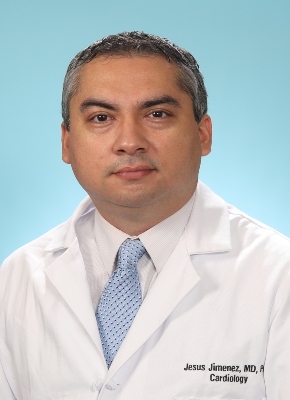
The Office of Diversity, Equity, and Inclusion has awarded Jesus M. Jimenez, MD, PhD of the Cardiovascular Division the Faculty Diversity Scholars Program Award. Other School of Medicine faculty recipients included Felicia I. Gomez, PhD, and Felipe Almeida de Pinho Ribeiro, MD. The mission of the DEI is to:
- Provide leadership, expertise and advocacy on all diversity, equity and inclusion efforts within Washington University School of Medicine.
- Direct, lead and advance institutional efforts that create a welcoming, diverse and inclusive environment where everyone is valued and respected.
- Enhance and develop community partnerships designed to address health needs and promote health equity within the St. Louis community and beyond.
The purpose of the DEI Award is to provide incentives to departments and programs that hire and retain faculty from populations that historically, have been excluded from medicine and
biomedical science, and as a result are underrepresented in medicine (URiM)
and/or underrepresented in research (URiR).
The Diversity, Equity, and Inclusion (DEI) Scholar Fellowship Program is designed to recruit emerging scholars from a range of disciplines who are well prepared to use diversity as a resource for enriching the education of all students.
Dr. Jimenez’s work is centered on understanding mechanisms of cardiac injury following cancer immunotherapy.
“As an early stage investigator, the support provided by the Diversity Scholars award will provide a jumpstart to my research program, allowing me to generate requisite preliminary to competitively apply for NIH R01 grant funding,” says Dr. Jimenez.
Jean Flanagan and Karen Bult Represent Wash U at Meeting for the VICTOR Study


Associate Director of Research Clinical Trials Operations Jean Flanagan and Research Nurse Coordinator Karen Bult presented at a meeting on patient recruitment held by Merk. The presentation was entitled “Recruitment Drive to the Finish – Site Perspective”
They spoke about recruitment at Barnes-Jewish Hospital for the VICTOR study for heart failure patients, focusing on the value of this study and advice for other sites to help with patient recruitment.
Way to Shine!
“Barb Stehman and Dana Gima are fabulous… in addition to Dr. Braverman. A GREAT team!”
Other Way to Shine’s for this month were Julianna Kretzinger, Nikki Madigan, Mandy Harris, Kelsey Fassold, Jessica Wagner, Katherine Ramsay, Victoria Menning, Krystal Chaimberlain, Deana Wilmesher, Nick Savage, and Lisa Fields.
If you catch someone in the act of shining, contact or send an email to bolhafner@wustl.edu.
Clinical Spotlight: Marfan Syndrome and Aortopathy Clinic

Each month, Heart Matters will highlight a research lab or clinical program. We want everyone in the division to be proud of the work we do across all of our locations and disciplines.
The Marfan Syndrome and Aortopathy Clinic, founded in 1992, is one of the largest clinics in the United States dedicated to the care of adults with heritable thoracic aortic diseases (HTAD) and aortopathies, including Marfan syndrome, Loeys-Dietz syndrome, vascular Ehlers-Danlos syndrome, nonsyndromic HTADs, bicuspid aortic valve with aneurysm, Turner syndrome, aortic dissection, unexplained thoracic aortic aneurysm, and other arteriopathies. Director Dr. Alan Braverman is well known internationally as one of the foremost experts on hereditary thoracic aortic aneurysm disease.
The team also includes Research Coordinator Leslie Boyer, Administrative Coordinator Cheryl Marshall, and Nurse Coordinators Dana Gima and Barb Stehman. Fellows Dr. Stephen Philip and Dr. Rohan Bhandari are also working with Dr. Braverman’s team.
Barb, Dana, and Cheryl have been working with Dr. Braverman for decades, and Dana has been at the clinic since its inception. They have an excellent rapport as a team, and enjoy working together. Cheryl notes that working together for a long time means that they’re able to anticipate other team members’ needs and work more seamlessly. Dana agrees, and says “we each fill a role, and our success is based on collaboration”.
Over the years, patient care for this subspecialty has seen a lot of change and development. When the clinic first started it focused mainly on Marfans Syndrome, a genetic condition that affects genetic tissue, causing effects throughout the body and carrying great risk of serious and fatal cardiovascular conditions. With more access to genetic testing, and greater understanding of the genetic conditions that cause aortic disease, they see patients with conditions such as Loeys-Dietz syndrome, Vascular Ehlers-Danlos syndrome, and others. Genetic testing has expanded the clinical ability to identify individuals with underlying problems, as these conditions are often found in multiple members of a family.
Dana says, “People are more well-informed than when I first started. We are seeing more early prevention and detection, which can prevent a catastrophic outcome”.
Barb notes that the education and awareness efforts of the Marfan Foundation (which Dr. Braverman serves on the Board of Directors) have made a big difference, including in the education of providers by holding conferences, one of which was held at the Washington University School of Medicine in 2005.
Leslie has been with the team four-and-a-half years, to assist with the expansion of clinical research. This includes the International Registry of Aortic Dissection, or IRAD, the largest study in the world on aortic dissection. The patients in this study are followed for five years after experiencing Acute Onset of Aortic Dissection. It has been ongoing for 18 years, and has nearly 700 patients enrolled. “I love this team.” Says Leslie. “Dr. Braverman is the most passionate doctor, and the patients love him.”
Both Dr. Philip and Dr. Bhandari knew of Dr. Braverman’s work as med students, and are excited to work with him as trainees. Dr. Bhandari, who is new to the Marfan Clinic in this fellowship year notes that “this is a unique niche with unmet need”, and he is being mentored by Dr. Braverman in his research, hoping to expand the knowledge base about these conditions.
Dr. Philip feels that the clinic is a special environment to work in. “The team is a bunch of characters- everyone is extremely personable. And patients come from a long way away to be counselled appropriately.”
The way the team loves working together is apparent, as is how passionate they are for their work and their patients. Dana says she feels honored to work with this team, and with Dr. Braverman. Barb adds, “Dr. Braverman is an excellent teacher, and makes sure we are always learning.”
Meet Your Colleague
Mary Watkins, BS, RT (MR), MRSO
Education Specialist, CTRAIN Group

How long have you worked in the division? I have worked in Cardiology 28 yrs.
What is the best thing about your job? I have loved working with a diverse group of people, creating new methods for MR imaging of the heart which continues to evolve.
What do you like to do outside of work? I love to cycle, garden and travel
What is your favorite food? Any kind of veggie
Fun fact about you: I have a black belt in Tae Kwon Do
Division Staffing Updates
Positions open for hiring:
Manager of Administrative Services
JR74113 Research Assistant – Dr. Rajan Sah’s Lab
JR73467 Clinical Research Coordinator II – Clinical Trials
JR72592 Research Cardiac Sonographer – Cardiovascular Imaging and Clinical Research Core Laboratory
JR73431 Postdoc Research Associate – Dr. Nate Stitziel’s Lab
JR73579 Research Specialist – Mouse Cardiovascular Phenotyping Core
JR74136 Research Opportunity – Dr. Stacey Rentschler’s Lab
JR74188 Research Opportunity – Dr. Sumanth Prabhu’s Lab
JR75603 Medical Scribe – South County Practice
JR75743 Research Technician II – Dr. Ali Javaheri’s Lab
JR76153 Senior Scientist – Dr. Rajan Sah’s Lab
JR76349 Admin Coordinator II – Cardiology Administrative Services
JR76174 Research Technician I – Dr. Ali Javaheri’s Lab
Welcome to the Cardiovascular Division:
8/14/2023 – Ryan Gilliam, Ultrasound Sonographer – South County Practice
8/21/2023 – Khavya Avula, Public Health Research Coordinator – Dr. Joynt Maddox Lab
Congratulations on your Promotion:
Guhan Iyer, Clinical Research Coordinator II – Global Health
Nikki Depew, Financial Analyst II – Cardiology Financial Services
Jean Flanagan, Associate Director of Research Clinical Trials Operations
Farewell:
Farewell to these Cardiovascular Division employees. Thank you for your service, you will be missed!
Abby McBee-Kemper, last day 9/8
Danielle Woods, last day 8/22
Jackie Dwyer, last day 8/25
Jeannette Fraser, last day 9/1
Constance Wagner, last day 9/1
Ashley Edwards, last day 10/3
Jeannette Fraser Celebrates Retirement with West County Office


Jeannette was hired in at BJC in 1989 and was out at West County starting in May of 2000. She has supported a wide number of staff. Happy retirement, and best wishes!
Health & Wellness
Heart Health & Fish
Emma Greenhill, MS, RD, LDN
EPA & DHA
Two main omega-3 fatty acids, eicosapentaenoic acid (EPA) and docosahexaenoic acid (DHA), are found mainly in fish, seafood, fish oil and algal oil. These are essential fats that the body cannot make; we must consume them in our diet. We know through evidence-based research that omega-3 fatty acids reduce triglyceride production. Triglycerides are a type of fat in your blood that normally rise after meals. Omega-3 fatty acids also reduce the risk of developing an irregular heartbeat, otherwise known as an arrhythmia. And when we regularly eat omega-3 fatty acids they slow the buildup of plaque in the arteries. Normally plaque buildup is called atherosclerosis. Atherosclerosis hardens and blocks your arteries making a heart attack or stroke more likely. And if that was not enough omega-3 fatty acids from diet help to slightly lower your blood pressure by slightly thinning the blood.
As you can see, omega-3 fatty acids are essential for producing the best possible heart health.
Ideas for how to eat more Fish/Seafood:
- Try making new fish/seafood recipe once a month
- Try ordering fish/seafood when you dine out
- Pick up cooked fish/seafood from your grocery store deli counter
- Make one night of the week fish/seafood night (e.g. “Fish Friday”)
- Work a fish recipe into your monthly rotation (e.g. salmon croquettes, tuna salad)
Alpha-Linolenic-Acid (ALA)
This type of omega-3 fatty acid is found in plants. It is found in flaxseed, canola, chia, soy, and walnuts. Your body can change alpha-linolenic acid into EPA and DHA; however, recent research suggests <5% of ALA is converted. Even so, regular consumption of alpha-linolenic-acid has been found to reduce risk of sudden cardiac death.
Ideas for how to eat more Alpha-Linolenic-Acid:
- Cook with canola, vegetable (soy) or flaxseed oil
- Add flaxseed or chia seed into your oatmeal, smoothies, or baked goods
- Include more vegetarian meals where your protein is edamame or tofu
- Add walnuts to your salads or cereals
What about supplements?
Current research is suggesting that supplementation may not be as protective for cardiovascular health as a dietary pattern high in omega-3 fatty acids. Additionally, Omega-3 supplements supply high doses that may interact with drugs that affect blood clotting. Therefore, supplements may not be recommended if you already take a blood thinner.
Fish Tikkas

Serves: 6 • Prep Time: 5 mins • Marinate Time: 90 mins • Cook Time: 20 mins
Marinate white fish in a low-fat tikka masala dressing and serve with salad to make this Indian-inspired dish. You can use any sustainably sourced white fish in this recipe.
Ingredients
- 1 kg Cod fillets (or any firm fish), cut into cubes
- 1 tablespoon lemon juice
- ½ cup low fat plain Greek yogurt
- 1 tablespoon vinegar
- 1 tablespoon garam masala
- 2 teaspoons ground cumin seeds
- 1 teaspoon red chili powder
- 2 teaspoons garlic paste
- vegetable oil spray
- optional: tomato chutney or salad
Directions
- Add the lemon juice to the fish cubes and set aside for half hour.
- Combine the rest of the ingredients except the oil and mix well. Pour mixture over the fish cubes and leave to marinate for another hour (at least).
- Preheat oven to 175 C/350 F.
- Lightly grease a baking tray with the vegetable oil. Place the cubes on the tray. Bake on the middle shelf until golden brown in color and cooked through.
- Serve hot with tomato chutney or salad.
References
- Recipe courtesy of: https://www.heartuk.org.uk/tasty-recipes/recipe-detail/41-fish-tikkas
- https://medlineplus.gov/ency/patientinstructions/000767.htm#:~:text=Omega%2D3s%20and%20Your%20Heart&text=They%20reduce%20triglycerides%2C%20a%20type,hardens%20and%20blocks%20your%20arteries.
- https://www.health.harvard.edu/blog/omega-3-fatty-acids-and-the-heart-new-evidence-more-questions-2021032422213
Do you have BJC Cigna? Remember that you have annual coverage to meet with me, Emma Greenhill, a Heart Care Institute dietitian. Call 314-996-8165 for more insurance information or to schedule an appointment.
Stay Financially-Savvy with New Financial Well-being Program

At WashU, we strive to offer a comprehensive employee experience that prioritizes your overall well-being. We recognize the crucial role that financial health plays in this, as stress related to money matters can negatively affect both your mental and physical health.
WashU is excited to announce employees, including faculty, staff, postdoctoral associates and clinical fellows, now have access to Enrich, a financial well-being platform that provides employees with the tools, education and support to empower decision-making to build a strong foundation for our employees’ financial future!
What is Enrich?
Enrich is a web-based platform that offers personalized finance courses and tools to WashU employees, with a particular focus on the relevant life events and benefits of the employee population. Confidential assistance from a team of certified personal finance coaches will also be available to WashU employees.
As you use the platform, customized content will be displayed. This will help you reach your financial objectives by providing personalized educational resources and support. Your dashboard offers a variety of resources such as videos, calculators, articles, tools, and courses.
How Do I Get Started with Enrich?
Login to the Enrich platform with your WUSTL Key through washuemployees.igrad.com.
After successfully creating your account, Enrich will prompt you to begin a financial wellness check-up. This quick process lasts less than five minutes and allows Enrich to personalize its financial content recommendations for you. Taking this step will enable you to make the most of the tools and resources available to you.
Please remember, the information you share in Enrich is confidential – WashU never receives any of your personal financial information.
| Get Started with Enrich Now |
Explore our financial well-being tools and resources, set goals, and connect with one of our financial wellness consultants to prepare a solid foundation for your future on WashU’s Financial Well-Being Hub.
Annual ‘Take Care’ Health Fair

SAVE THE DATE
Join us at the Danforth Take Care Health Fair on October 10, 2023 from 10am – 2pm at Sumer’s Rec Center for a variety of well-being activities including fitness assessments from WashU PT, free chair massage, onsite health screening, flu shots, attendance prizes, and much more!
The Take Care Health Fair highlights the 8ight Ways to Wellness principles to address common well-being topics and answer your well-being questions. Learn about the benefits available to you as a WashU employee and empower yourself to achieve your well-being goals now and in the future.
Fall 2023 COVID-19 Update
As our academic year begins and students return to the classroom, it is important for all of us to remain up–to-date on the current state of COVID in our community and remember best practices, policies and expectations of faculty and staff.
- Since the July 4th holiday, we have seen an increase in COVID cases among WashU faculty and staff. While summer travel may explain some of this, a new Omicron subvariant is emerging within the community and contributing to cases. Although past infection and vaccination with the current Bivalent booster are protective and reduce symptoms, it is still possible to get sick with this subvariant. Current regional levels of infection and hospitalization remain significantly lower than past peaks during the Delta (Fall 2021) and Omicron (January 2022) surges. However, hospitalizations nationwide have increased approximately 40% since earlier in the summer when cases were at their lowest.
- To protect yourself, our colleagues, and our community, please remain vigilant for symptoms of COVID. Regardless of campus location or job position, any employee with COVID-related symptoms (e.g., fever, cough, shortness of breath, runny nose, sore throat, muscle or body aches) or a positive COVID test is required to contact the Occupational Health Call Center at 314-362-5050 or covidcallcenter@wustl.edu for screening and further guidance prior to reporting to campus.
- Occupational Health will accept report of a positive home antigen test in lieu of a laboratory test, but these results must be communicated to the Occupational Health Call Center. Symptomatic employees with a negative home test should contact the Call Center to arrange additional testing.
- Each of us has a vital role to play in safeguarding health and reducing the spread of COVID through effective handwashing, staying up-to-date on COVID vaccinations, and choosing to wear a mask when there are increased risks (e.g., crowded indoor public spaces).
- While vaccinated individuals can still get COVID, vaccination significantly lowers the risk of severe illness, hospitalization and death. WashU’s Occupational Health (located in the Center for Advanced Medicine, Suite 5A, at the Medical Campus) currently provides free COVID boosters to all WashU employees on the 1st and 3rd Fridays of every month. To ensure adequate vaccine supply, employees must schedule an appointment by calling 314-362-3528.
- We anticipate an updated COVID booster to be released sometime in the fall, possibly late October. Additional information about availability/reimbursement of the vaccine will be shared in future communications. Employees who have not yet received the current booster may wish to consult their primary care provider regarding whether they should receive the current booster now or wait for the updated booster later this fall.
Please direct any questions to occupationalhealth@wustl.edu. Working together, we can continue to protect our WashU community against COVID-19 as we start a new and exciting academic year.
IT Spotlight: Generative Artificial Intelligence (AI)
Generative AI is a type of artificial intelligence that can learn from and mimic large amounts of data to create content such as text, images, music, videos, code, and more, based on inputs or prompts.
The university supports and encourages the responsible and secure exploration of AI tools. When using any of these tools, especially public, open-source, non-protected AI tools, it is vitally important to keep information security and data privacy, compliance, copyright, and academic integrity in mind.
Guidance
It is the user’s responsibility to protect sensitive data and verify content when using generative AI tools.
Be Mindful Not to Share Sensitive Information
Do not enter confidential or protected data or information, including non-public research data, into publicly available or vendor-enabled AI tools.
Information shared with public AI tools:
- Is not considered private.
- May be added to the tool’s knowledge base and provided to other users.
- Is usually claimed to be the property of the vendor.
These Tools Can be Inaccurate
Each individual is responsible for any content that is produced or published containing AI-generated material.
- AI tools sometimes “hallucinate,” generating content that can be highly convincing, but inaccurate, misleading, or entirely fabricated.
- It may contain copyrighted material.
- All AI-generated content should be reviewed carefully for correctness and cited properly before submission or publication.
Adhere to Current Academic Integrity Policies
Review university, school, and department handbooks and policies.
- Schools will be developing and updating their policies as we learn more about AI tools.
- Faculty members should teach and advise students about policies on the permitted uses of AI in classes and on academic work.
- Students are encouraged to ask their instructors for clarification about these policies.
- AI may contribute intentional and unintended forms of plagiarism and falsification of data.
Be Alert for AI-Enabled Phishing
AI has made it easier for malicious actors to create sophisticated scams at a far greater scale. Continue to follow security best practices and report suspicious messages via the Phish Report button in Outlook or to phishing@wustl.edu.
| Keep up to date with IT news at the Office of Information Security blog |
Follow the Cardiovascular Division on X!
Check out our division account, @WashUCardiology! We will be sharing division accomplishments, announcements, news, events, and more. If you have a story about the cardiovascular division that you think deserves a social media spotlight, email bolhafner@wustl.edu.
